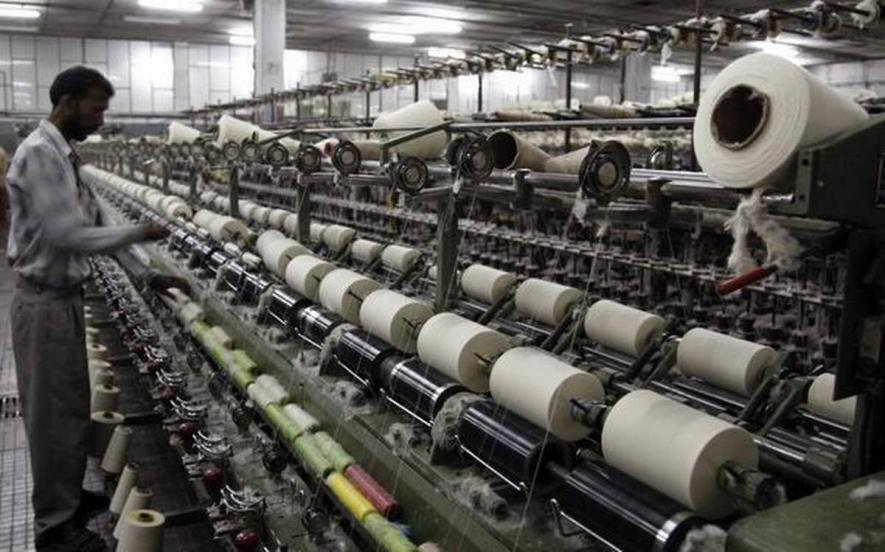Uttarakhand Exempts New Factories from Safety Norms, Retrenchment Provisions Following Centre’s Directions

Image for representational use only.Image Courtesy : The Hindu
The Uttarakhand government has given a go-ahead for an ordinance relaxing a slew of labour regulations, which includes among others, giving a free hand to new factories in the state to operate without adhering to the occupational safety and health norms.
The Trivendra Singh Rawat – led government, in a cabinet meet held on Wednesday, July 29, gave its nod to provide exemption to new factories, set up within 1,000 days, from the purview of provisions altogether enlisted under Factories Act, 1948 and Industrial Disputes Act, 1947, according to the information shared by cabinet minister and state government spokesperson Madan Kaushik.
Details of the ordinance, which has reportedly been sent for Governor’s approval, are yet to be made public. It will also require the President’s nod since labour falls in the concurrent list of the Constitution.
With this, Uttarakhand became the latest state to introduce far reaching labour reforms to woo industry, affected by COVID-19, after similar regulatory exemptions were announced by Uttar Pradesh and Gujarat. Following their footsteps, Madhya Pradesh, had, however, taken a slightly different approach, while announcing concessions rather than doing away with the laws.
Incidentally, all these states are currently ruled by a Bharatiya Janata Party (BJP) government.
As per the exemptions, new manufacturing units set up in Uttarakhand will need not follow the working conditions norms – spelled out under the Factories Act in a bid to ensure health of the workers. This translates to exemptions to factories from necessary provisions of cleanliness, ventilation, working hours, canteens, among others.
Exemption from all this for almost a three-year period means none of these will be mandated to be followed by the new factories, said Anamitra Roychoudhury, professor at Centre for Informal Sector & Labour Studies, Jawaharlal Nehru University.
Also read: Punjab Latest to Effect Labour Reforms; ‘Race to the Bottom’ in Labour Standards, Says Expert
“This will potentially lead to a further increase in exploitation of the workers – as for instance, there won’t be any stopping in exposing workers to hazardous chemicals without any safety equipment because there won’t be any legal oversight into the conditions of employment within a factory,” he said.
While Uttar Pradesh and Gujarat had also approved a similar suspension of the act for 1000 days, Madhya Pradesh exempted the new industries from certain provisions under the act.
Roychoudhury contended that, despite being the oldest and a very central act in ensuring safety to workers, the Factories Act had remained poorly implemented. The result, according to him, has been naturally more accidents in the factories.
“And, even more so, as in recent times, is the increased proportion of fatal accidents – in which workers lose their lives – to that of total such accidents,” he said. According to an estimate, there have been 30 industrial accidents, killing 75 people, in the country post the nationwide lockdown.
Moreover, doing away with the Factories Act for new factories may also lead to further deterioration of work conditions in the existing ones and in informal economy as well – since provisions under this act were usually held as the minimum standards, Roychoudhury added.
Furthermore, there won’t be any worry to maintain the harmony of relations between the employers and workers, since the new factories are also exempted from the Industrial Disputes Act, 1947, which also confers rights to workers during retrenchments and lay-offs.
It will result in absolute adoption of a hire and fire policy by the industries, according to senior advocate Sanjay Singhvi, who is actively involved with labour matters. “There is no equal bargaining [between workers and the employers] in our country, which has huge unemployment figures. In such a scenario, if government stops regulating within the labour market, it will inevitably be an anti-worker move,” he said.
As a result, the already low wages will take the first blow, leading to a further depression in rates, Singhvi added.
Also read: The Mendacity of Modi Govt’s ‘Rescue Package’
The sweeping changes to labour regulations by the Uttarakhand Government comes days after the Centre reportedly told the parliamentary standing committee on labour that such suspension won’t be entertained by it.
Interestingly, a Hindi daily quoted Uttarakhand state government spokesperson Kaushik as saying that the recent reforms have been announced following instructions from the Centre.
NewsClick reached out to him through multiple calls seeking a confirmation on this, but there was no response.
Earlier, numerous states including Rajasthan, Goa, Punjab, Haryana among others had also increased working hours to 12 from the accepted norm of eight hours. States like Uttar Pradesh and Karnataka had to later revoke their order extending daily shifts, after they were challenged in the respective state high courts.
Scrapping labour laws amid COVID-19 pandemic, introduced by states, had also prompted International Labour Organisation (ILO) to reach out to Prime Minister Narendra Modi, after the former was urged to act by the 10 central trade unions. The UN body had expressed its concerns over the undermining of the international labour standards by the recent measures.
India is one of the founding members of ILO which has ratified conventions, some of which makes it bound to consult stakeholders including trade unions in the law and policymaking processes.
Get the latest reports & analysis with people's perspective on Protests, movements & deep analytical videos, discussions of the current affairs in your Telegram app. Subscribe to NewsClick's Telegram channel & get Real-Time updates on stories, as they get published on our website.























